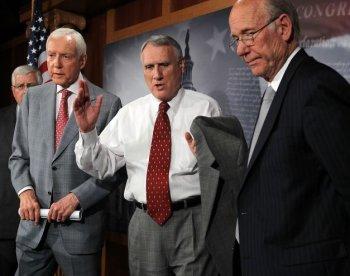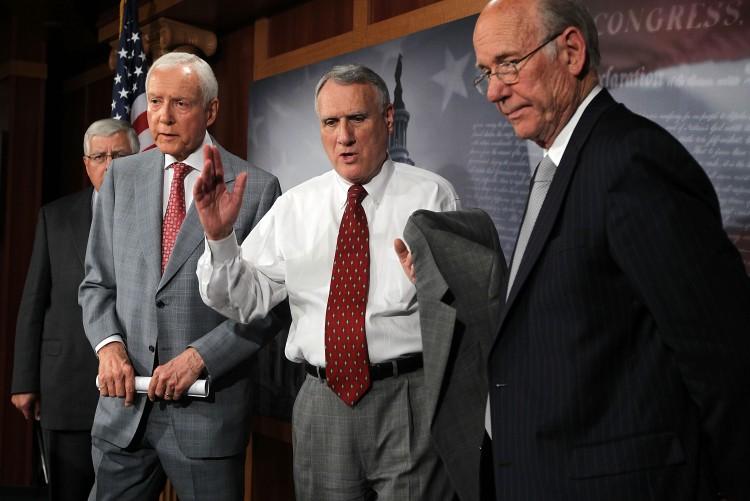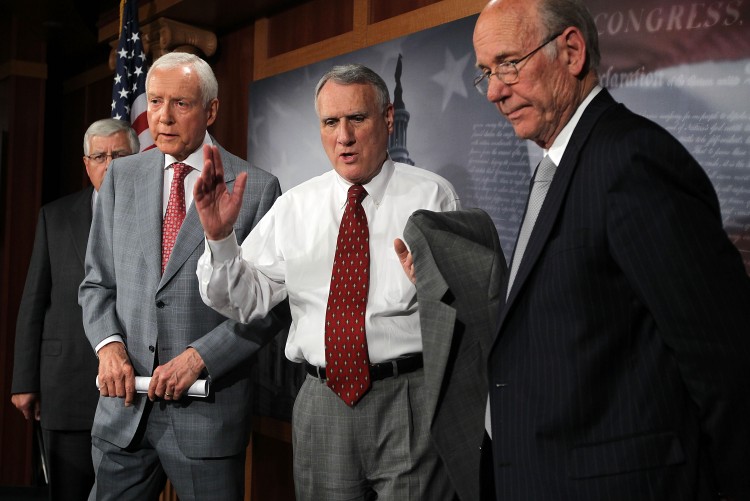Republican Senators Boycott Trade Meetings
In a show of discontent Senate Republicans boycotted a meeting on Capitol Hill last week on the pending free trade agreements with Colombia, South Korea, and Panama.

Sen. Mike Enzi (R-Wyo.), Sen. Orrin Hatch (R-Utah), Senate Minority Whip Sen. Jon Kyl (R-Ariz.), and Sen. Pat Roberts (R-Kan.) attend a news conference June 30 on Capitol Hill.
|Updated:



